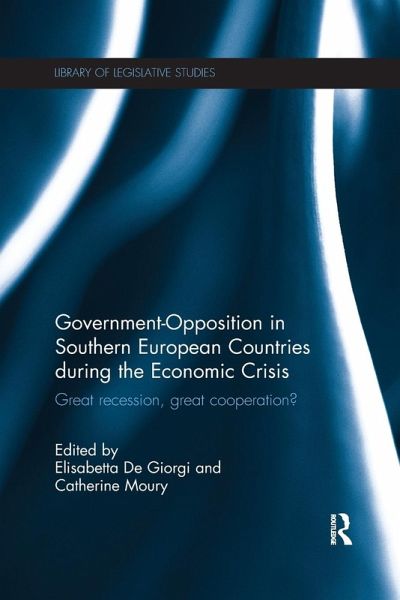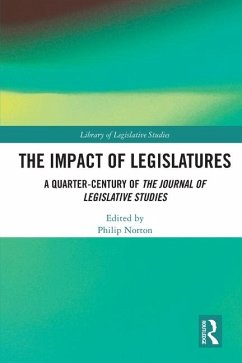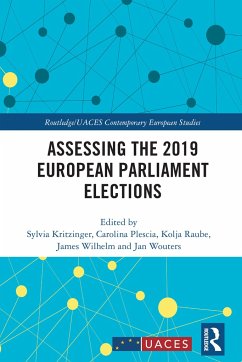
Government-Opposition in Southern European Countries during the Economic Crisis
Great Recession, Great Cooperation?
Herausgegeben: Giorgi, Elisabetta; Moury, Catherine
Versandkostenfrei!
Versandfertig in 6-10 Tagen
54,99 €
inkl. MwSt.

PAYBACK Punkte
27 °P sammeln!
The international economic crisis has hit Europe, especially its 'periphery', remarkably hard, and has had deep consequences at the economic and political levels. Since its onset, parties in parliament (especially those in opposition) have found themselves faced with a dilemma: choosing between the need to cooperate with the government in order to overcome the crisis and the opportunity provided by a weakened government to stress their adversarial position, so as to be more easily re-elected and possibly get into power. What have they decided to do? This is a crucial question, for which there ...
The international economic crisis has hit Europe, especially its 'periphery', remarkably hard, and has had deep consequences at the economic and political levels. Since its onset, parties in parliament (especially those in opposition) have found themselves faced with a dilemma: choosing between the need to cooperate with the government in order to overcome the crisis and the opportunity provided by a weakened government to stress their adversarial position, so as to be more easily re-elected and possibly get into power. What have they decided to do? This is a crucial question, for which there is no easy or intuitive answer. The present volume introduces a collection of works exploring this dilemma in southern European countries, by examining the opposition behaviour in Greece, Italy, Portugal and Spain; and in the European Parliament. In so doing, we shall try to understand not only what kind of impact the crisis has had on the level of consensus in parliament in the four countries mentioned, but also whether differences are observable across cases.
This book was originally published as a special issue of the Journal of Legislative Studies.
This book was originally published as a special issue of the Journal of Legislative Studies.














